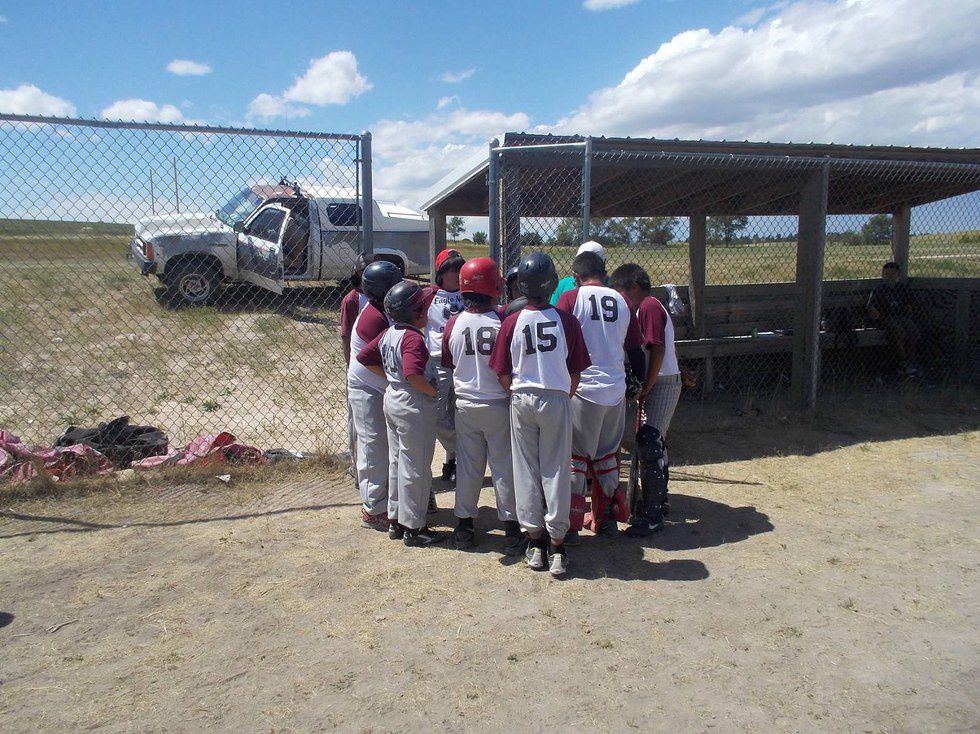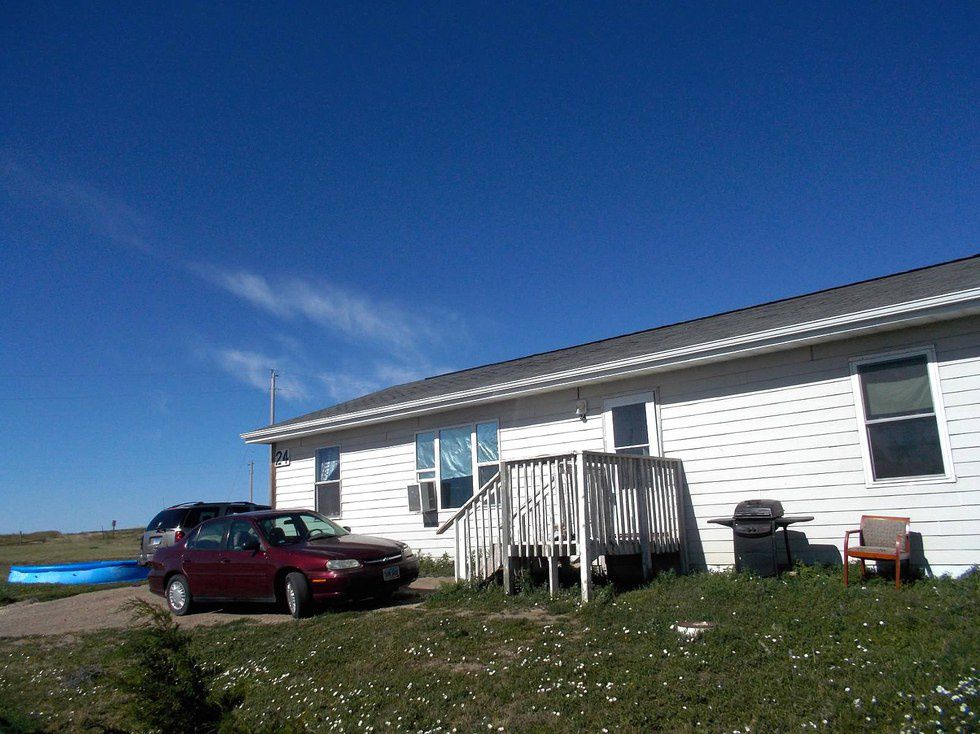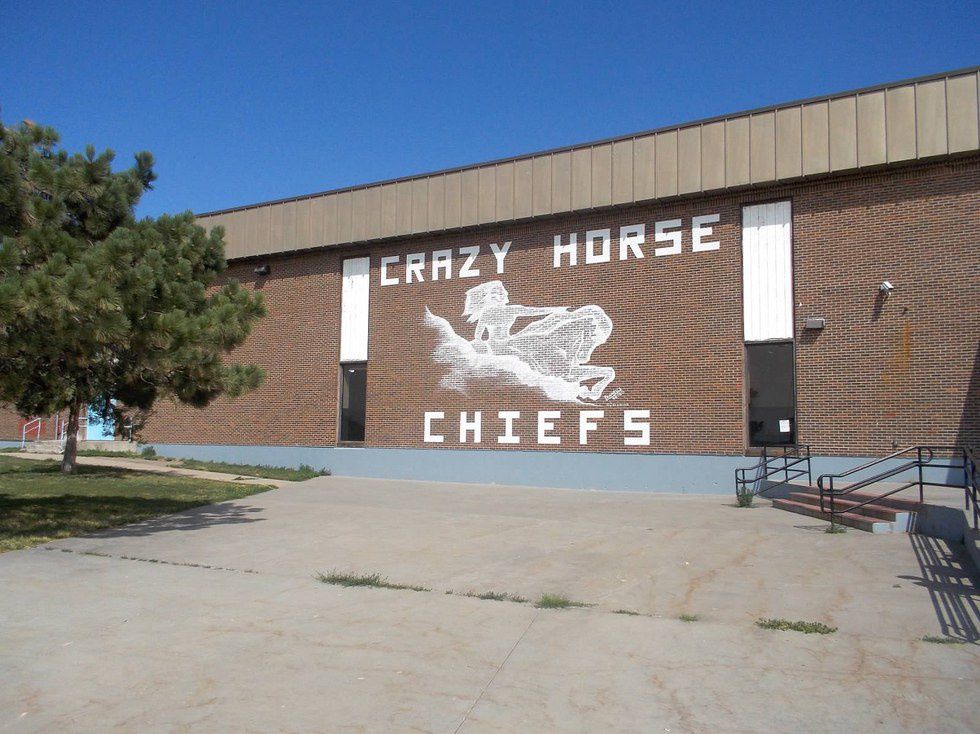The Breakdown:
In July I spent a week in Wanblee, a small town on the Pine Ridge Reservation. Located in south-western South Dakota, Pine Ridge is the poorest reservation in all of the U.S., as well as the second largest with 16 thousand inhabitants. I spent the week helping out at a kids camp through which I developed friendships with many local children. On the way to Wanblee, we were warned many times by gas station and restaurant workers that the people of Pine Ridge didn't want us there and that they "hated white people," but they were wrong. On our last night on the reservation, I shared a conversation with a young single mother who tearfully hugged me for caring for her child. She went on to share that she is often upset by the poor reputation reservations have and that she wishes more people would come and try to understand the community. I was taken aback by the resiliency, kindness, and beauty that these people harbored. Those children, although most of them will probably never make it off the reservation, were full of hope and happiness. Because of those kids, I have been inspired to share the story of the current Lakota community to gain awareness of their situation and to crush the Lakota's poor reputation.
Food:
All those under 18 are offered a free breakfast and lunch daily at Crazy Horse School. This food is provided by government funding and feeds hundreds of children every day; however, the meals are similar to the hot meals found at gas stations. The meals are not nutritious or fresh and are often rather small. In the city of Wanblee, there is one grocery store which again is essentially a gas station selection of food. The nearest supermarket, like Target or anything that has fresh produce, is two hours away, in Rapid City.
Housing:
My crew was in charge of picking up the kids each morning for camp. We rang the doorbells of all the houses in three neighborhoods and asked if they had any kids that would like to come to camp. The houses were in very poor condition with broken windows, doors, holes in the framing, etc. I was really confused as to why they would not take care of the houses that were built for the families of their tribe. I talked to one of the site leaders and she explained to me that the Lakota tribe were very nomadic people, meaning they preferred to live a lifestyle that allowed them to move around and not be tied down to one area.
Jobs:
There are very, very few jobs available on the reservation, and even less jobs in Wanblee. Many adults do not have jobs, but it is not because they are lazy or don't care about their families, there are simply not jobs available near them. Some people elect to move to Rapid City, without their families, and try to work as much as possible in hopes of being able to come home with money. I met many kids who had either one or two of their parents away in Rapid City. The older ones explained to me how hard it was to have them gone but they understood that it was what they had to do for the greater good of their family.
Gangs/Alcohol/Drugs:
Pine Ridge, especially Wanblee, is plagued with the strong presence of gangs, violence, alcohol, and drugs. One morning, a little boy that I was playing with kept yawning and seemed so tired. I asked him why he was so tired, hoping to spark up some playful conversation. This nine-year-old responded that his older brother had kept him up for hours, making him help look for beer that the boy's parents had hidden from him. This hurt my heart. Later in the week, one of my friend's groups went out to paint a house. They ended up painting a bedroom that an eight-year-old girl had shared with her eighteen-year-old sister. A few months prior, the older sister drew gang signs and swear words all over the walls before she ran away, never to be seen again. The younger sister was really hurt and unsettled by the writings on the walls and was so happy to have it painted over. A lot of people in the reservation who can't find work end up feeling helpless and turn to alcohol and drugs to keep their minds off of their current situations. Many children have fetal alcohol syndrome or another disorder due to chemical use en utero. There are actually no liquor stores on the reservation but people always seem to find their way around prohibition. Many believe that it would be better to have liquor stores on the reservation because then at least the tribe would benefit with both the earnings and the job opportunities.
School:
There are 15 operating public schools on the reservation and 3 private schools. The school drop-out rate on the reservation is over 70% and many students have an attendance record that is well below 90%. Many children lack inspiration to finish high school because many of those around them have not and even an education does not ensure getting off of the reservation.
Family Life:
Family is very important to the Lakota tribe and they made sure that we knew that. One day on the bus, these five boys were punching and yelling at each other. One of the people in my group broke it up but I later asked the site director why the kids were so physical with one another. She explained to me that that group of boys were all brothers/cousins living under their grandmother's roof as their parents had left, died, or weren't in the picture. This is the case for many families on the reservation. Family is one of the most important values of the Lakota tribe; in times of hardship they are always there for their families.
Why You Should Care & What You Can Do:
The conditions of the poor Native American Reservations should be a concern to you because their conditions are unlike those of the United States. These reservations and their vicious poverty cycles are not something that our country is proud of. It is really important that with the coming election, you take each candidate into consideration, analyzing and contemplating how they would treat these unique, special, and beautiful people. It is time to shed light on the realities of life on a reservation and finally treat the Native people as they deserve. It is time that we view one another as equals. It is time that we start caring for others as if they were ourselves or our neighbors because many of us are just a few hours away from a reservation. It is time for change...
"We are more alike, my friends, than unlike" -Maya Angelou














































